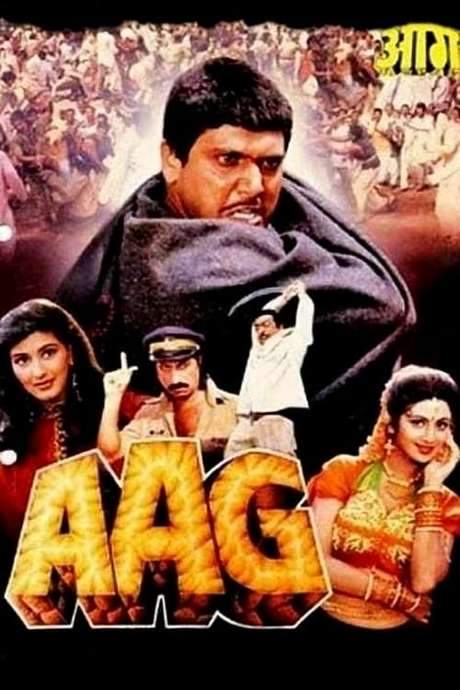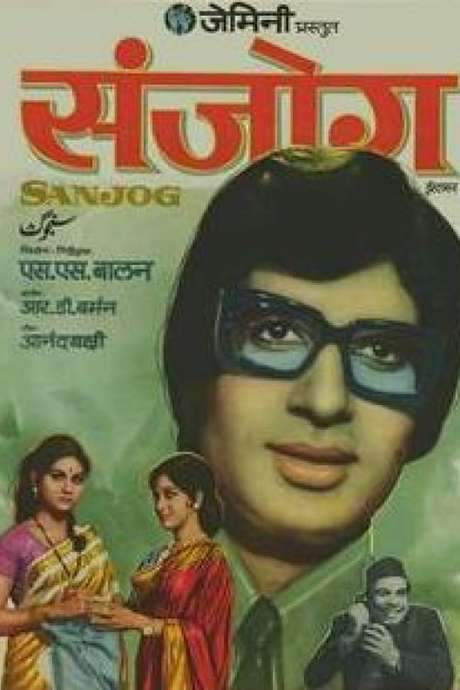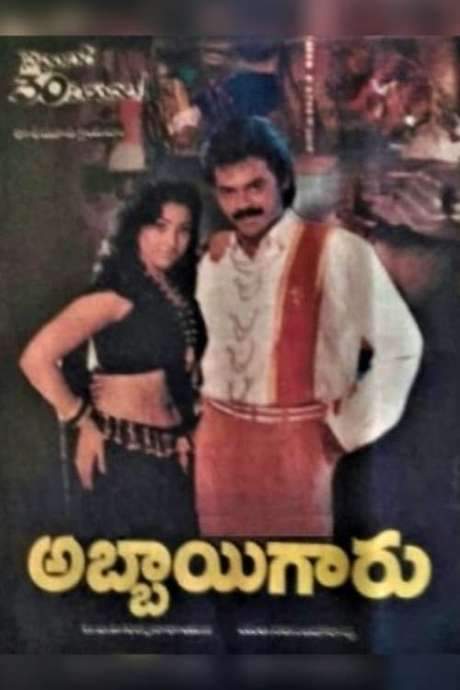
Aga Bai Arechya
Year: 2004
Runtime: 144 mins
Language: Marathi
Director: Kedar Shinde
Shriranga Deshmukh, weary of the women around him, returns home only to discover he has acquired a supernatural ability to hear any woman's thoughts. Suddenly privy to their inner dialogues, he navigates a series of comedic misunderstandings and revelations, echoing the premise of “What Women Want.”
Warning: spoilers below!
Haven’t seen Aga Bai Arechya yet? This summary contains major spoilers. Bookmark the page, watch the movie, and come back for the full breakdown. If you're ready, scroll on and relive the story!
Aga Bai Arechya (2004) – Full Plot Summary & Ending Explained
Read the complete plot breakdown of Aga Bai Arechya (2004), including all key story events, major twists, and the ending explained in detail. Discover what really happened—and what it all means.
Shrirang “Ranga” Deshmukh Sanjay Narvekar is a mid-level executive at a Mumbai travel firm, living in a bustling joint family that includes his wife, Priyanka Yadav as Suman, his mother, his estranged father, his grandmother, and his sister. Life at home feels like a constant tug-of-war: a demanding female boss at work, a nagging partner at home, and a chorus of relatives whose expectations press on him from every side. He moves through ordinary days—overwhelmed by meetings, deadlines, and the everyday irritations that come with balancing work and family—until a trip to his native village during the annual Jatra festival gives him a momentary sense of relief and humor.
During the village visit, Shubhangi Gokhale plays Ranga’s boss in the office, a stern presence whose orders shape his days and shape his self-image. While in the crowds and chants of the fair, Ranga voices a blunt wish: “If only I could understand what women want!” This line, spoken in mischief, becomes the catalyst that sets off a remarkable, transformative event. On the return train to Mumbai, he begins hearing the private thoughts of every woman around him—their innermost feelings, fears, and desires—creating a chaotic torrent of unspoken truths that clash with what they verbalize.
Back in the city, the new reality unsettles him. He blurts out what he hears, right in the middle of conversations on the street and in the bus, leaving people around him feeling exposed and uneasy. At work, his sudden, verbatim reactions to colleagues’ private thoughts spark suspicion and fear, and his family starts treating him as unstable. In one of the film’s funniest turns, Ranga starts mimicking people’s thoughts, delivering responses that seem almost psychic and terrifying those who hear them.
Seeking clarity, he turns to Dr. Suhas Phadke—a calm, insightful psychiatrist portrayed by Bharati Achrekar—who listens with care and offers a gentle pivot: perhaps this isn’t madness, but a gift. Her advice is crucial: don’t react impulsively to what you hear; use this power to understand, connect, and heal. The tone shifts from fear to curiosity as Ranga begins to test this new empathy in real life.
At home, the effects ripple outward in surprising and heartwarming ways. He becomes a more supportive presence for Suman, standing by her during tensions within the family. He reaches out to his mother with a new sense of consideration, and he forms a genuine bond with his grandmother, seeing them as individuals with their own burdens and stories. For the first time, he perceives Suman not as merely a wife or a task to manage, but as a woman carrying her own hidden loads. Rather than insisting on “being the man of the house,” he embraces partnership and equality.
A deeply moving moment comes when he arranges a long-awaited visit for Suman to see her mother, a reunion she had hoped for since their marriage. The emotional depth expands further as Ranga connects with the silent, withdrawn father who has long carried the weight of a failed moment from years past. Through the mother’s thoughts, he learns the family’s hidden history: his father, once a mill leader, froze in a strike negotiation and was humiliated into silence, stepping away from leadership and from speech. Understanding this, Ranga seeks reconciliation, meeting his father with compassion, and gradually mends a broken bond—an emotional breakthrough that redefines what it means to be a son.
Ranga’s new outlook also reshapes his relationship with his boss at the office. He learns that the woman he once saw as merely formidable is someone with a difficult past—divorced, who once dreamed of being a homemaker but was forced to shoulder professional responsibilities after a partner’s financial missteps. With this insight, he treats her with growing respect and warmth, and their professional dynamic begins to heal. He also rebuilds a connection with a former colleague who had been sidelined, restoring that person’s dignity and place in the workplace.
The turning point extends beyond the office and home into public life. While visiting a government office, Ranga overhears the inner thoughts of a woman planning a bombing. He quickly moves to intervene, preventing a catastrophe and saving countless lives. At a press conference, when asked how he discovered the plan, he delivers a heartfelt monologue about the complexity, resilience, and strength of women’s minds—thanking the experience for the profound empathy it sparked in him. Later, he encounters the would-be terrorist again and, hearing her backstory, tries to guide her toward redemption rather than hatred.
One year later, Ranga returns to the same Jatra where his extraordinary journey began. His telepathic gift has vanished, but his inner peace remains. His wife’s initial disappointment at the loss of this power gives way to a deeper understanding: he has learned that true connection doesn’t come from supernatural ability, but from listening, respecting, and standing with others in their humanity. The story closes on a note of lasting balance and empathy, celebrating how Ranga’s transformation—driven by a deeper, more compassionate understanding of women, family, and society—reshapes his world for the better.
“If only I could understand what women want!”
-
Ranga begins a journey that shifts his life from frustration to insight, from isolation to connection, guided by the quiet wisdom of those around him and the moments of clarity that come from truly hearing them.
-
His wife, Priyanka Yadav, emerges as a partner with shared burdens; his father, Dilip Prabhavalkar, finds a voice for forgiveness; and his boss, Shubhangi Gokhale, becomes someone understood rather than feared.
This retelling keeps the spirit of the original while expanding the emotional terrain, keeping the focus on empathy, family bonds, and the dignity found in listening—not just hearing.
Last Updated: October 09, 2025 at 15:08
Explore Movie Threads
Discover curated groups of movies connected by mood, themes, and story style. Browse collections built around emotion, atmosphere, and narrative focus to easily find films that match what you feel like watching right now.
Movies with empathy superpowers like Aga Bai Arechya
Stories where an extraordinary ability leads to deeper empathy and self-discovery.If you liked Aga Bai Arechya, you'll enjoy these films where characters gain a special ability that helps them understand others better. These stories explore personal growth through supernatural means, focusing on empathy, communication, and heartfelt connections in a comedic and uplifting way.
Narrative Summary
The narrative pattern begins with the protagonist acquiring an unexpected power, often causing initial chaos or comedy. This leads to a journey of discovery as they learn to interpret and use their ability, culminating in a positive transformation where the power becomes a tool for building empathy and resolving personal conflicts, rather than just a source of gags.
Why These Movies?
These films are grouped together because they share a core premise: a supernatural device used for character-driven, relational growth. They balance comedy with heartfelt emotion, maintain a hopeful tone, and conclude with a protagonist who has gained significant emotional intelligence, making the experience both entertaining and uplifting.
Funny movies about understanding women like Aga Bai Arechya
Lighthearted stories that use humor to explore the dynamics between men and women.Find more films like Aga Bai Arechya that use comedy to explore what women want. These lighthearted stories focus on family dynamics, workplace relationships, and personal transformation with an empathetic and hopeful vibe, perfect for viewers looking for uplifting comedies about relationships.
Narrative Summary
The stories typically follow a protagonist, often a man, who is initially frustrated or confused by the women in his life. A plot device—supernatural or situational—gives him unprecedented insight into their world, leading to a series of comedic yet revealing episodes. The journey culminates in a newfound appreciation and empathy, strengthening his key relationships.
Why These Movies?
These movies share a specific comedic vibe: using a high-concept premise to explore relatable themes of communication and empathy within families and relationships. They have a steady pacing, medium emotional weight, and consistently balance laughs with genuine heart, resulting in an experience that is both funny and feel-good.
Unlock the Full Story of Aga Bai Arechya
Don't stop at just watching — explore Aga Bai Arechya in full detail. From the complete plot summary and scene-by-scene timeline to character breakdowns, thematic analysis, and a deep dive into the ending — every page helps you truly understand what Aga Bai Arechya is all about. Plus, discover what's next after the movie.
Aga Bai Arechya Timeline
Track the full timeline of Aga Bai Arechya with every major event arranged chronologically. Perfect for decoding non-linear storytelling, flashbacks, or parallel narratives with a clear scene-by-scene breakdown.

Characters, Settings & Themes in Aga Bai Arechya
Discover the characters, locations, and core themes that shape Aga Bai Arechya. Get insights into symbolic elements, setting significance, and deeper narrative meaning — ideal for thematic analysis and movie breakdowns.

Aga Bai Arechya Spoiler-Free Summary
Get a quick, spoiler-free overview of Aga Bai Arechya that covers the main plot points and key details without revealing any major twists or spoilers. Perfect for those who want to know what to expect before diving in.

More About Aga Bai Arechya
Visit What's After the Movie to explore more about Aga Bai Arechya: box office results, cast and crew info, production details, post-credit scenes, and external links — all in one place for movie fans and researchers.

Similar Movies to Aga Bai Arechya
Discover movies like Aga Bai Arechya that share similar genres, themes, and storytelling elements. Whether you’re drawn to the atmosphere, character arcs, or plot structure, these curated recommendations will help you explore more films you’ll love.
Explore More About Movie Aga Bai Arechya
Aga Bai Arechya (2004) Scene-by-Scene Movie Timeline
Aga Bai Arechya (2004) Movie Characters, Themes & Settings
Aga Bai Arechya (2004) Spoiler-Free Summary & Key Flow
Movies Like Aga Bai Arechya – Similar Titles You’ll Enjoy
What Women Want (2000) Movie Recap & Themes
What Men Want (2019) Complete Plot Breakdown
Bhaiaji Superhitt (2018) Spoiler-Packed Plot Recap
Tirumala Tirupati Venkatesa (2000) Story Summary & Characters
Manmadhudu (2002) Detailed Story Recap
Allari Bullodu (2005) Movie Recap & Themes
Aggar (2007) Film Overview & Timeline
Manchi Rojulochaie (2021) Complete Plot Breakdown
Aag (1994) Movie Recap & Themes
Agni Sakshi (1996) Ending Explained & Film Insights
Sanjog (1972) Spoiler-Packed Plot Recap
Fakt Mahilao Maate (2022) Spoiler-Packed Plot Recap
Abbaigaru (1993) Complete Plot Breakdown
Anuraag (1972) Ending Explained & Film Insights
Chalti Ka Naam Gaadi (1958) Detailed Story Recap











































